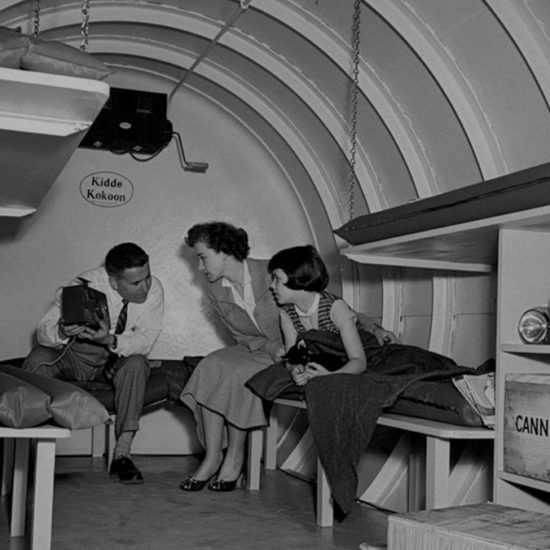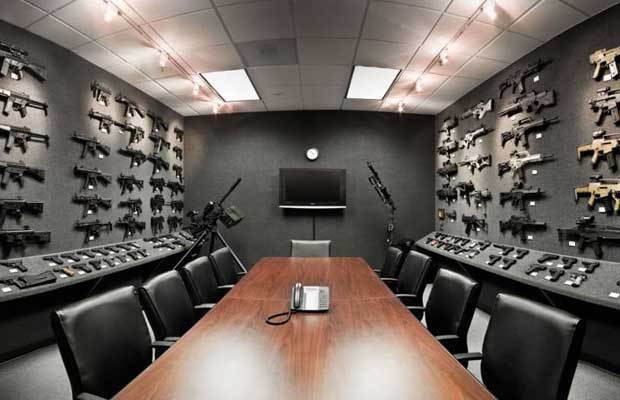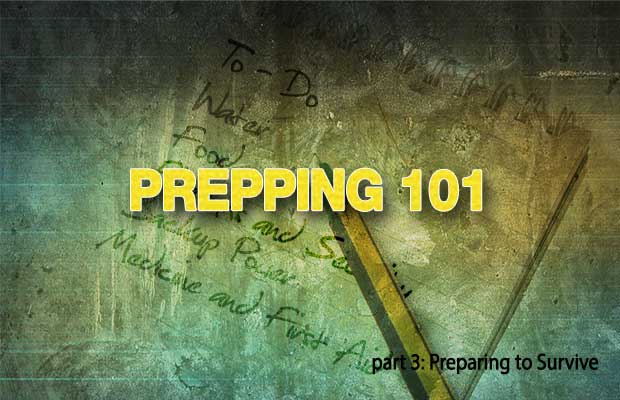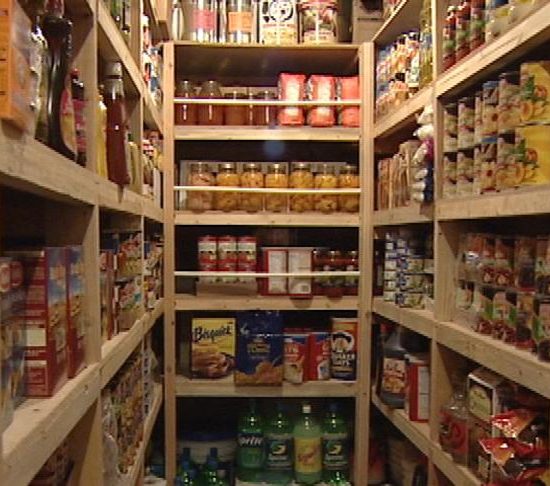
This is the fourth in a series for the beginning prepper on how to get started Prepping. In part one of this series we covered defining your priorities and making sure you have a sufficient store of water. The second article covered planning for long term food storage and selecting the best firearm for self-defense. In the third installment, we dealt with financial security and having appropriate medical supplies to treat basic injuries. The fourth installment went a little longer than I anticipated so I will deal with Home Security and Communications in the next one.
Step 7 – Backup Power
As you begin to make preparations for your family, these articles are trying to help you begin to lay out a strategy that deals with preparedness items in a logical order of importance. As I said at the beginning, this assumes you have nothing right now which isn’t always the case. Most people to some extent have pieces of equipment around the house that can be the basis for an emergency survival kit but may not have assembled them before or thought of these disparate pieces as part of a single system. In looking at our priorities, we have addressed the basics of what you need to stay alive (food & water) as well as protect yourself (firearms). After these core items, we began to look at items that can give you an edge; where you don’t necessarily need these to live, but they could be vital in contributing in a good way to your personal survival experience.
Using our hypothetical disaster scenario, you are alive and have plenty of food and water to last you some duration. Power isn’t necessary in most cases, but it sure can make living much easier. In some cases, having power is vitally important to your survival. Diabetics who need insulin, for example, will need to have their medication cooled or else it goes bad quickly. If you are a type one diabetic and aren’t able to get insulin, your health is impacted immediately and death is unfortunately not far away.
Power is necessary for a lot of items in our homes and is a welcome comfort after a survival situation or short-term emergency. Power can help keep the food in your refrigerator fresh longer. This will allow you to eat what you have in the fridge and freezer potentially before dipping into your survival food stores. I have heard tons of stories of people during a long-term power outage having huge block parties where they grill up all of the steaks, chicken, and fish they had stored in their freezers. This at least allows you to get some use out of the food you have and it can be a huge morale booster.
Outside of the obvious requirements to keep your coolers running, there are different needs in the summer as opposed to winter. Actually, in winter, you are often able to let Mother Nature keep the food cold. If you have a chest type freezer, it is better to keep it as stocked as possible. A fully stocked freezer will keep the food colder for a longer period. The mass of frozen food is just expensive blocks of ice and when you don’t have a lot of dead air space in there, the food keeps itself cold for a couple of days minimum depending upon the insulation factor of the freezer obviously. A fully stocked freezer should keep meat safe for up to 72 hours. I haven’t experimented with this personally and hope not to, but the concept is sound.
A key to ensuring this type of time is to keep the freezer closed. Every time you open it, you are letting cold air out and warm air in. Chest freezers are better at keeping the cold air in because it settles to the bottom. Regular upright freezers lose air at the bottom every time you open the door. You can also increase the insulating capacity of your freezer by covering it in heavy blankets after the power goes out. Much more than 72 hours is probably not going to be possible though so you might find yourself hosting one of those block parties if you don’t have any backup power.
The two most common options for backup power are solar panels and generators. Both options have their advantages and disadvantages and a fully well-rounded approach would be to have both. These aren’t the only solutions of course as there are water and wind options, but those are not viable for most people unless you have near perfect conditions so I will focus on the two main sources.
Generators
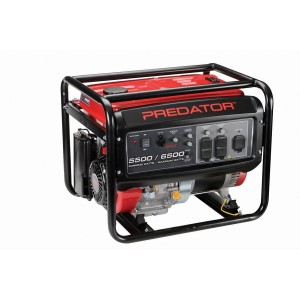
Whichever generator you have it will need fuel and oil most likely and generators aren’t shy about using both. Their usefulness ends as soon as the fuel runs out and if you don’t have enough oil, the engine could seize so planning for storing fuel has to be considered equally with the decision to purchase a generator.
Your generator will be rated at certain wattage. The higher the wattage, the more devices you can power with your generator, but unless you have installed a huge 14,000 watt home generator you will have to be selective about what you are going to plug-in. Some appliances require extra power to start-up, while others maintain the same power requirements constantly.
To calculate your power needs correctly, you need to know which kind of load you are dealing with. (A load is defined as the device that you are powering.) There are two kinds of loads, Resistive and Reactive.
Resistive loads are pretty simple: they require the same amount of power to both start and run the equipment. Many resistive loads are involved in heating or making heat of some kind. Examples of resistive loads include light bulbs, coffee makers and toasters.
Reactive loads contain an electric motor, which requires additional power to start, but significantly less power to run once it gets going. Typically starting power is 3 times the amount of power to run the application. Examples of reactive loads include refrigerators/freezers, Furnace fans, well pumps, and Air conditioners. Knowing how much power you are going to need is important when choosing your generator wattage and you can easily figure this out by purchasing an inexpensive appliance load tester at your local hardware store.
Unless money is not an issue, I would recommend getting a generator that will power a few devices but not count on your entire house being lit up with running AC in the middle of a summer power outage or winter storm. You should easily be able to run your refrigerator or freezer for a few hours during the day and power several lights, small appliances and charge your cell phones at night with a moderately priced generator. You can tie your generator into your home’s electrical system with a relatively simple kit, but you want to ensure that this is done in a way that doesn’t fry the electric company technician when they are working on your line.
A few other considerations on a generator are noise and safety. For obvious reasons, your generator should be in a well vented area. The engine spits out noxious gas just like your car, so don’t bring it into the house with you. If it is outside, it can be stolen though and this has been a problem in large disasters. You may want to consider having a way to bolt your generator down to a concrete surface. This brings up another issue of safety and that falls into OPSEC.
If you are looking at a total collapse of society, the noise from your generator will be heard from a pretty good distance away. We recently went through a minor power outage of only 4 hours, but when the electricity is off, it gets really quiet. After our power went off, I went outside and quickly heard two of my neighbors’ generators starting up. If you are worried that someone will know you have power, a generator’s noise makes this a less than ideal option.
Solar Power
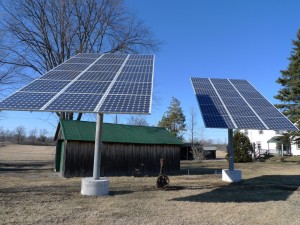
On the other hand, noise is not something you have to worry about with solar power. You also don’t have to worry about storing fuel or oil and unless we really do face TEOTWAWKI (The End of The World As We Know It), the sun will keep on shining every day.
Solar panels have different needs than generators though as the power that is generated from the photovoltaic cells needs to be stored. As well as the solar panels, you will need a bank of batteries. The most commonly recommended batteries are Deep Cycle, lead-acid batteries. These are ideally suited for these applications because of their long, reliable life and low-cost of ownership.
Once you have panels sending power to your batteries you will need an inverter to convert that electricity back to 12V for use in your home. This is what you will plug your appliances into. There are kits you can purchase for about the same cost as a basic generator that have the panels and usually a cheap inverter. The batteries are extra and a good quality inverter is recommended. Also, with solar you have a little more set up than with a generator, but there are loads of advantages.
For starters, unless the sun has been blacked out by us humans hoping to keep the machines from taking over (cheesy Matrix reference) there will always be sunlight. Sure, the sun is supposed to gobble us all up at some point, but I am not worrying about 5 years from now much less 5 million years. This means that you should have an unlimited supply of fuel for your little photovoltaic cells to run on. This is superior to generators for the obvious reason that you can never store enough gasoline to last forever. Sunlight doesn’t usually blow up when it comes in contact with a stray spark either, so it is safer and wont go bad without using fuel additive treatments.
There is no noise to contend with using Solar Power and this helps you in two ways. First, it will prevent people from finding you that you didn’t want coming to dinner. Secondly, it will not be so noisy that you can’t hear what is going on around you. Win Win!
Solar panels and the hardware associated with them can be mounted to a roof which makes them harder, but not impossible to steal. I have seen several applications where the panels are mounted to a pole in the yard. This makes installation easier, but they can just as easily be uninstalled by the bad guys at night while you are sleeping under the soft noise of your fan powered by your batteries.
Solar isn’t perfect though. The panels are all made differently so there are quality issues to be aware of. Also, to be truly efficient, the solar panels need to adjust daily for the suns movement or more precisely, the earth’s movement in relation to the sun. Additionally, the panels need to be very clean or else they do not receive as much light and their power output is reduced. Also, the panels can be damaged by rocks, strong winds, hail or falling branches. Once damaged, there won’t be too many options for repair.
The most perfect scenario in my mind is one in which you have both options. Ideally, a tri-fuel generator that has a natural gas hook-up, with a backup propane tank and one hundred gallons of gas feeding to your daisy-chained battery bank of 20 deep cycle batteries for cloudy days. On sunny days, your 5,250-watt solar panels feeding into the same batteries giving you the best of both worlds. Maybe you can swing this, but most of us can’t.
The reality might be more like a used 4,500-watt generator and 20 gallons of gas with an RV set up 140-watt panel and two batteries. We all have to start somewhere and there isn’t anything wrong with that. Research which options work best for you and then take care of your back-up power needs.















